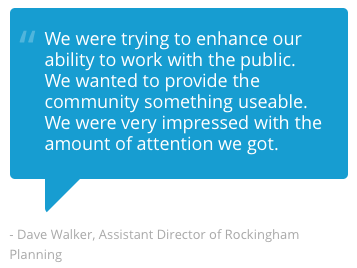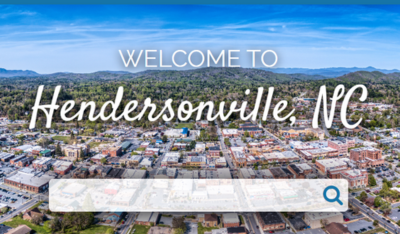Cities of every size are subject to traffic and parking issues. Every town has roads, commuters, pedestrians, bikers – not to mention limits created by zoning, space, or capacity for infrastructure.
Exeter, New Hampshire is a town of 15,000 residents. Over the past year, parking and traffic have been garnering more attention from the public, the Select Board, and regional press. Concerns were raised when a new business development meant temporarily giving up eight public parking spaces and re-routing downtown traffic. Likewise, handicap compliance and accessibility also drew attention last July.
These issues – which may appear minor at first – often have much larger implications if they go unmitigated over time; namely on local businesses, but also on the general quality of life for residents.
Exeter used community engagement software to better understand the public’s perceptions on parking and traffic downtown, as well as their travel habits and community needs. The 18-question survey allowed residents to self-report on a variety of topics, including:
- Where they tended to park
- Typical hours they parked downtown
- Methods of travel to and from downtown
- How many parking spots s/he believed to exist downtown
- Distance willing to walk from a parking spot to a final destination
The survey, which was live for 12 days, had 860 participants and created 28,000 data points which could then be analyzed and reported on.
Clear data stories are key to a community needs assessment
Being able to aggregate a large amount of public input, analyze it, and visually report results creates a clear picture to make decisions that are reflective of residents. Sometimes these results may not be surprising, but they are valuable: equipping agencies and elected officials with clear numbers that verify qualitative observations. Just as often though, the results do raise new findings and ideas, as they reveal the public’s opinions and experiences. In this case, 76% of Exeter residents reported that downtown conditions sometimes, frequently, or always determined their decision to go downtown at all.
While great community engagement means reaching a wide representation of the population, getting as much engagement as possible, and analyzing results – that doesn’t necessarily mean that the decision making will be easier. For example, Exeter’s survey revealed a near 50-50 split on building a parking garage. In addition, the success of the survey has sparked conversation around a more formal study which would require a substantial budget, a clear strategy to get the most meaningful data, and time to complete. While community engagement efforts like these sometimes lead to more questions and issues to address, they always move the conversation forward with reliable information.
Community engagement builds trust
Regardless of what future outcomes and decisions may be, the concerted effort – which elected officials have agreed was a great first step – shows that actions are being taken to address community concerns, and the survey findings were reported in the local press.
The Exeter community engagement project was completed with a pilot from PublicInput.com. You can view the complete results here.
To learn more about community engagement software get a live demo at PublicInput.com.

The survey, which was live for 12 days, had 860 participants and created 28,000 data points which could then be analyzed and reported on.
Clear data stories are key to a community needs assessment
Being able to aggregate a large amount of public input, analyze it, and visually report results creates a clear picture to make decisions that are reflective of residents. Sometimes these results may not be surprising, but they are valuable: equipping agencies and elected officials with clear numbers that verify qualitative observations. Just as often though, the results do raise new findings and ideas, as they reveal the public’s opinions and experiences. In this case, 76% of Exeter residents reported that downtown conditions sometimes, frequently, or always determined their decision to go downtown at all.
While great community engagement means reaching a wide representation of the population, getting as much engagement as possible, and analyzing results – that doesn’t necessarily mean that the decision making will be easier. For example, Exeter’s survey revealed a near 50-50 split on building a parking garage. In addition, the success of the survey has sparked conversation around a more formal study which would require a substantial budget, a clear strategy to get the most meaningful data, and time to complete. While community engagement efforts like these sometimes lead to more questions and issues to address, they always move the conversation forward with reliable information.
Community engagement builds trust
Regardless of what future outcomes and decisions may be, the concerted effort – which elected officials have agreed was a great first step – shows that actions are being taken to address community concerns, and the survey findings were reported in the local press.
The Exeter community engagement project was completed with a pilot from PublicInput.com. You can view the complete results here.
To learn more about community engagement software get a live demo at PublicInput.com.
[/et_pb_text][/et_pb_column][/et_pb_row][/et_pb_section]


